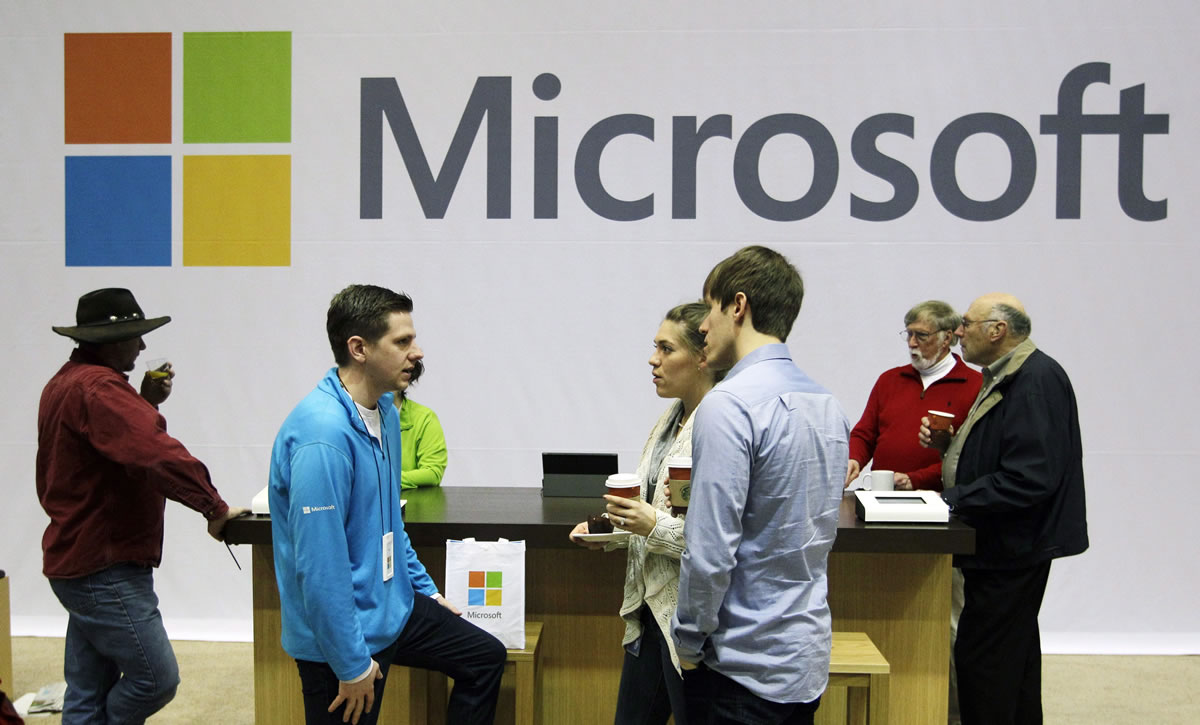Microsoft Corp.’s new leadership could almost double the company’s valuation by parting with a good chunk of the businesses it uses to court consumers.
Jettisoning units such as Xbox video-game consoles and the Bing search engine may be the change Microsoft needs to rejuvenate growth as Satya Nadella takes over as chief executive officer, said Schwartz Investment Counsel Inc., which owns Microsoft shares. The world’s biggest software maker should go further by splitting off Windows and smartphones to focus on providing services to business customers, said Stifel Financial Corp.
“They need to decide whether it still makes sense to have those assets,” said Todd Lowenstein, a Los Angeles-based fund manager at HighMark Capital Management Inc., which oversees about $17 billion including Microsoft shares. “Eighty percent of the value of Microsoft is on the enterprise side and it’s not being valued that way today. The consumer side of the business gets a disproportionate amount of attention.”
Nadella, named CEO on Tuesday by Microsoft’s board, inherits a company whose inroads in providing cloud-based enterprise software and services have been overshadowed by disappointments in tablets, smartphones and its search engine. Microsoft’s price-earnings ratio is about half the median for software makers, according to data compiled by Bloomberg, implying that the company’s valuation could almost double if it focused just on software and services.
Microsoft unchained
Microsoft has touted the benefits of having Bing as an ingredient in products like Windows and Xbox. In his final shareholder meeting in November, Steve Ballmer, the outgoing CEO, cited the new Xbox One as representing the vision the company has for a unified set of products and mentioned Bing as well.
Peter Wootton, a spokesman for Redmond-based Microsoft, declined to comment Monday on whether the company would be open to a split.
Microsoft rose 2.7 percent on Jan. 31 — the day after Bloomberg News reported Nadella would be promoted to CEO — for the biggest increase in the Dow Jones Industrial Average, which fell 0.9 percent.
Investors are wagering that Nadella, a 22-year Microsoft veteran, will help concentrate the company more on the faster growing enterprise and cloud businesses that he currently runs, according to Donald Selkin, who helps manage about $3 billion including Microsoft shares as chief market strategist at National Securities Corp. in New York.
“This is the direction that investors think would be their best chance of getting their earnings back up and increasing their revenue,” Selkin said in a phone interview. Stocks of cloud-based software and services companies “have really exploded over the last year or so.”
Shareholders may find an insider advocate in Mason Morfit, the president of activist investing firm ValueAct Holdings. Morfit, who’s set to join Microsoft’s board in March, wants the company to reduce its focus on Windows and accelerate efforts to unchain products and services from the operating system, according to people familiar with the matter who asked not to be identified because the information is private.
Morfit also wants to emphasize enterprise and cloud businesses and push Microsoft to look at splitting off or scaling back hardware and consumer products such as Xbox, the people said.
Xbox, which started selling the new Xbox One console in November, may be worth about $23 billion on its own, based on Nintendo Co.’s price-sales ratio, according to data compiled by Bloomberg.
Change in focus
Spinning off the more consumer-focused businesses together — including Windows, phones, Xbox and the Bing Internet search service — would boost investor returns and help focus the company on software and services for business customers, said Brad Reback, an Atlanta-based analyst at Stifel. Such a move would also keep Bing tied to many of the consumer products into which it’s integrated.
“I remain very skeptical around the device side of the business and their ability to make money and really add value to shareholders over time,” he said by phone.
Reback’s suggestion would involve splitting off pieces of Microsoft that accounted for about 40 percent of the company’s $78 billion of revenue in fiscal 2013, which ended in June, data compiled by Bloomberg show.
Focusing on software and services would transform Microsoft into a company that more closely resembles its industry peers, which fetch a valuation that’s almost double Microsoft’s.
Microsoft’s price-earnings ratio is the second-lowest among software providers with market values exceeding $5 billion, data compiled by Bloomberg show. Its enterprise value is also relatively low versus earnings before interest, taxes, depreciation and amortization.
At 7.5 times, it trails the median of about 14.3 for software peers, the data show.
“The stock is incredibly cheap,” Tim Schwartz, a fund manager at Bloomfield Hills, Mich.-based Schwartz Investment, said in a phone interview. “We’re looking for the new CEO to break from the past and take Microsoft in a new direction. We’re hopeful that the enterprise part of Microsoft becomes more of a focus.”
Chances of a breakup
After a split, Microsoft may seek to buy software-as-a-service companies, such as Ultimate Software or Concur Technologies, to bolster its enterprise applications business, said Reback of Stifel.
“At some point, I think you need to be fully in or out of that business,” known as Microsoft Dynamics, Reback said. “If they were to spin out the device business and head down a pure enterprise path, I think they would double down on that Dynamics business and look to augment what they have with acquisitions.”
A breakup may be wishful thinking because Nadella is being promoted from within Microsoft and because the Nokia deal showed a commitment to consumer businesses, said Schwartz, whose firm oversees $1.5 billion and owns Microsoft shares.
“I don’t think that’s going to happen,” he said. “But we’d certainly be in favor of it if it did.”



